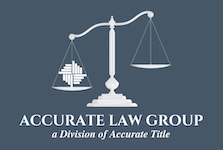When real estate is bought in New Hampshire, real estate transfer taxes (also called deed recording taxes) are due. Different from ongoing real estate property taxes, transfer taxes are owed only once when a property changes hands. It is important for home buyers and sellers to be familiar with what a transfer tax is and the amount that it may impact funds needed at closing. This article provides an overview of New Hampshire real estate transfer taxes and who is responsible for them.
New Hampshire Real Estate Transfer Taxes and Who Is Responsible For Them
The transfer of property means a grant, sale, exchange, assignment, quitclaim, contract for sale, or other conveyance of ownership in title to real property. In New Hampshire, both buyers and sellers are responsible for real estate transfer taxes. The amount of New Hampshire real estate transfer taxes is calculated by the contract price of the property and the tax rate of $7.50 per thousand. It is levied as part of closing costs for both buyers and sellers and is usually required before the deed recorded. The calculation of the tax is often the task of the closing agent and is detailed in the settlement statement.
An Overview Of New Hampshire Real Estate Transfer Taxes
The amount of tax due is based on the standing rate on the day that a closing takes place and the deed is recorded. Transfer tax rates may change from time to time. Suggested increases are generally met with resistance. Consult with a real estate professional for relevant details on tax rates. You may also want to consult your tax preparer on whether real estate transfer taxes aretax deductible. An overview of New Hampshire real estate transfer taxes and who is responsible for them, as provided above, is intended as a basic overview. Contact Donna Dufour at Accurate Title by calling 800-639-4405 or emailing info@accuratetitle.com with any questions.

